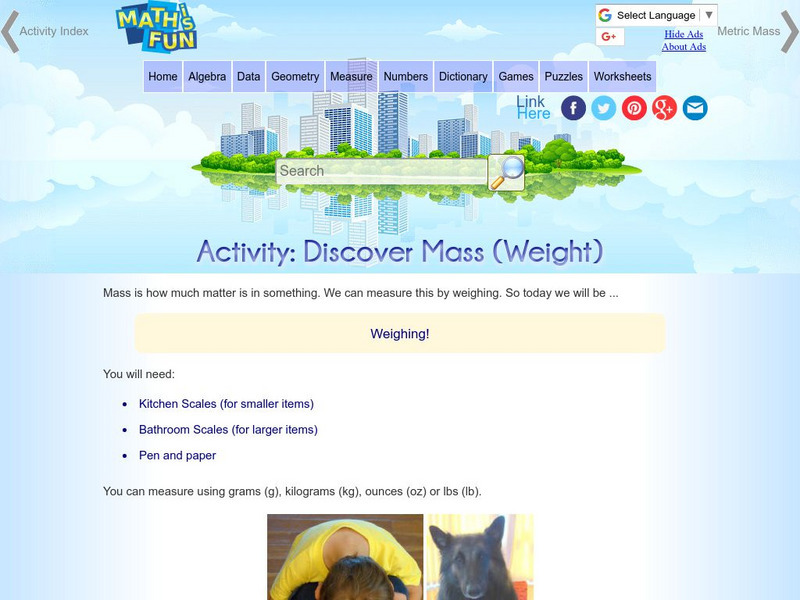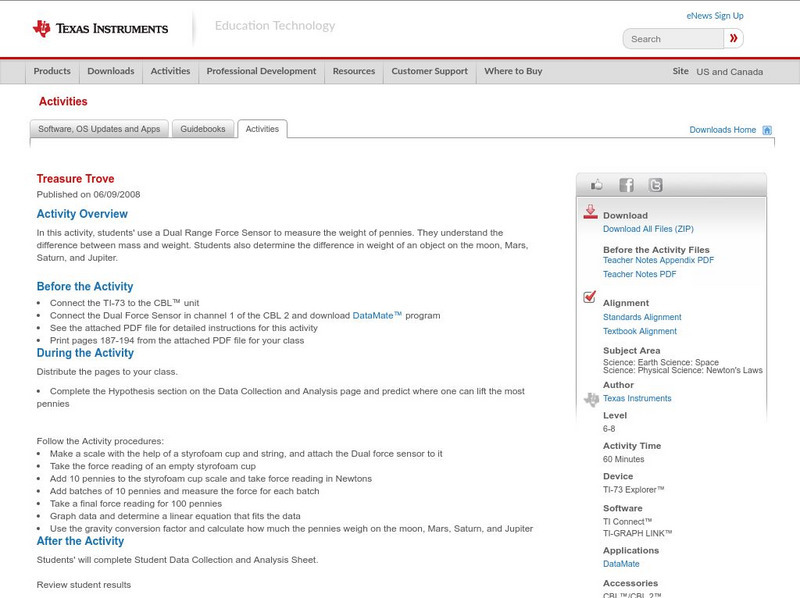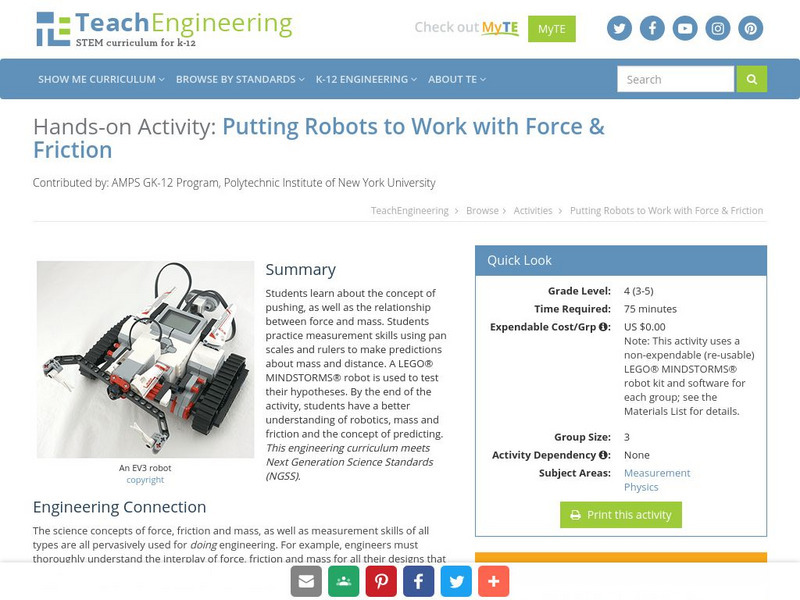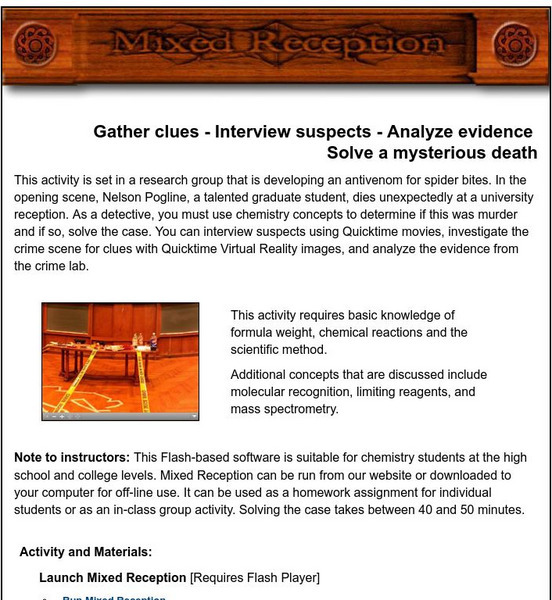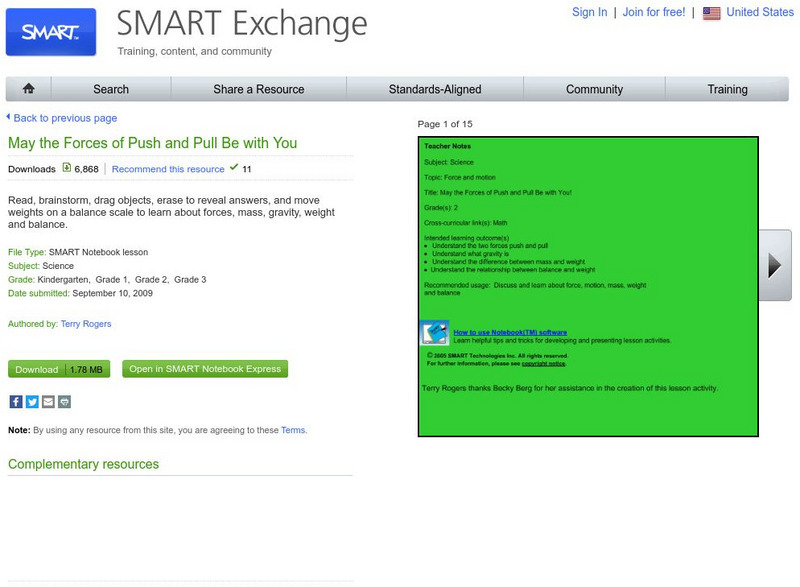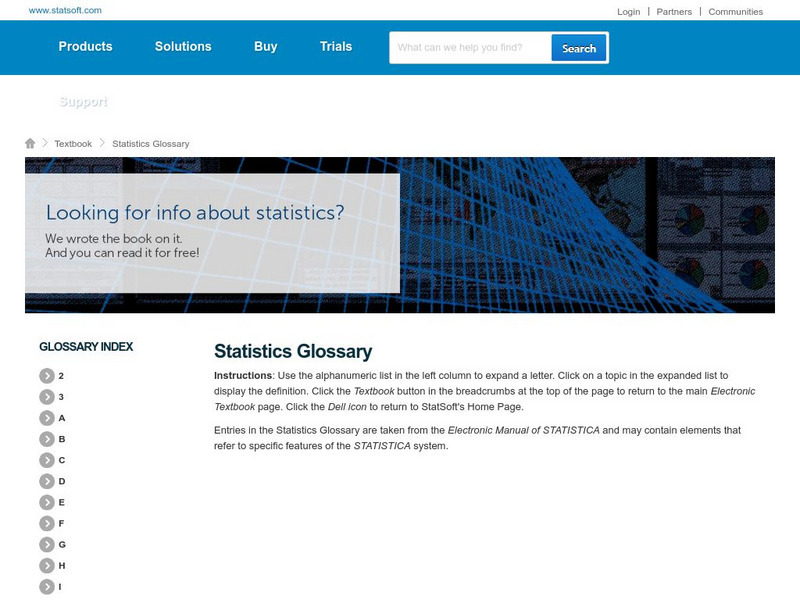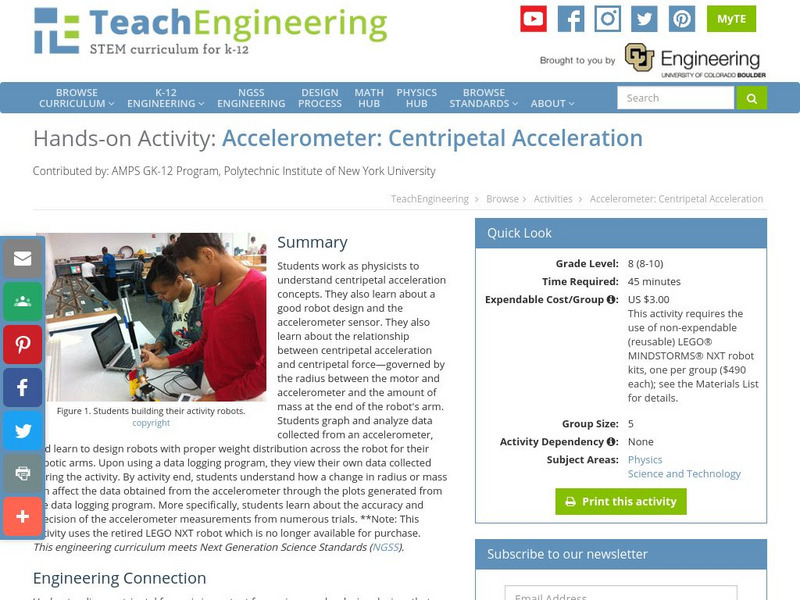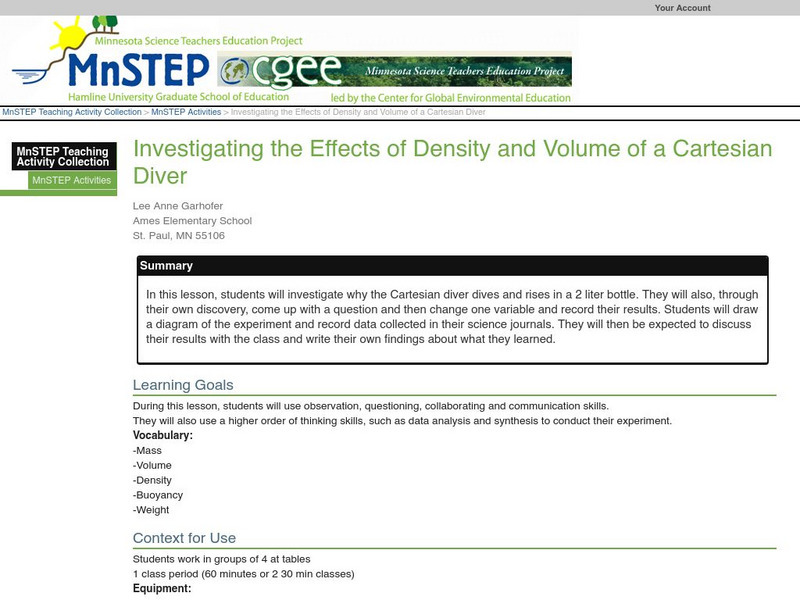University of Colorado
University of Colorado: Ph Et Interactive Simulations: Masses & Springs
Hang various mass weights on spring scales while you adjust the spring stiffness and damping in this online activity. Slow down the action, take it to another planet, or watch the amount of potential, thermal, and kinetic energy.
Math Is Fun
Math Is Fun: Activity: Discover Mass (Weight)
The learning activity explores weight. Students weight different items and compare their mass from smallest to largest.
University of Cambridge
University of Cambridge: Maths and Sports: Light Weights
Could the location of the Olympic host city have an effect on weightlifting events? This activity provides an interesting context in which to engage with weight, mass and gravitation, and is aimed at A-level students (grades 10, 11, and...
Texas Instruments
Texas Instruments: Treasure Trove
In this activity, students use a Dual Range Force Sensor to measure the weight of pennies. They understand the difference between mass and weight. Students also determine the difference in weight of an object on the moon, Mars, Saturn,...
National Council of Teachers of Mathematics
Nctm: Figure This: Body Mass What's Your Index? (Pdf)
If you like tackling formulas, then this math challenge is for you. See if you can calculate Helix's BMI (body mass index) and find out if his health is at risk. A one page NCTM Math Challenges for Families activity that engages learners...
Science Education Resource Center at Carleton College
Serc: Investigating Isotopes and Average Atomic Mass Using Pennies
In this activity, students apply what they have learned about weighted averages, isotopes, and systems of equations to a new situation - coins in a sealed container. They learn some historical information regarding the composition of...
Science Education Resource Center at Carleton College
Serc: Mineral Density: Teaching Accuracy, Slope, and Percent Error
Students explore the meaning of density and use their math skills to graph mass/volume data, write an equation for a line, and interpret the slope of the line. Students also find the density of two unknown mineral samples and use those...
NASA
Nasa: Beginner's Guide to Aerodynamics
Includes exhaustive information and a wealth of activities pertaining to aerodynamics and the physics of flight.
TeachEngineering
Teach Engineering: Mechanics Mania
Through ten lessons and numerous activities, students explore the natural universal rules engineers and physicists use to understand how things move and stay still. Together, these rules are called "mechanics." The study of mechanics is...
TeachEngineering
Teach Engineering: Putting Robots to Work With Force & Friction
Students learn about the concept of pushing, as well as the relationship between force and mass. Students practice measurement skills using pan scales and rulers to make predictions about mass and distance. A LEGO MINDSTORMS NXT robot is...
Chemistry Collective
Chem Collective: Mixed Reception
Participate in the investigation of a virtual crime scene using chemistry concepts to solve a mysterious death. The 40-50 minute activity can be used as a classroom lab or as a homework assignment. Additionally, teachers may request a...
Science Education Resource Center at Carleton College
Serc: Air Is Matter
It's difficult at times for younger students to realize that air has mass. Matter is something that has volume (takes up space) and has mass (*can be weighed). Air does take up space, even if we can't see it, and air has weight, even if...
Oswego City School District
Regents Exam Prep Center: Metric Conversions and Rates
Find out all about measurement in this test prep lesson exploring English and metric measurement. Students can compare metric and customary measurements using the conversion charts, assess how much they have learned using the interactive...
Primary Resources
Primary Resources: Measures
A huge collection of teacher resources to aide in the teaching of all types of metric measurement: length, distance, mass, weight, capacity, and volume. Activities include measuring, estimating, converting, investigating, and finding...
PBS
Pbs Mathline: Sand Babies (Pdf) [Pdf]
In this engaging lesson, students use a variety of measurement strategies in creating their own Sand Babies. Students explore standard and non-standard measurements, area, data collection and analysis, and graphing. Adaptations are...
SMART Technologies
Smart: May the Forces of Push and Pull Be With You!
Read, brainstorm, drag objects, erase to reveal answers, and move weights on a balance scale to learn about forces, mass, gravity, weight, and balance in this activity created by SMART.
Other
Stat Soft: Statistics Glossary
Dozens of statistical terms are defined and illustrated in this glossary.
TeachEngineering
Teach Engineering: Accelerometer: Centripetal Acceleration
Students work as physicists to understand centripetal acceleration concepts. They also learn about a good robot design and the accelerometer sensor. They also learn about the relationship between centripetal acceleration and centripetal...
TeachEngineering
Teach Engineering: Applying Hooke's Law to Cancer Detection
Students explore Hooke's law while working in small groups at their lab benches. They collect displacement data for springs with unknown spring constants, k, by adding various masses of known weight. After exploring Hooke's law and...
Science Education Resource Center at Carleton College
Serc: Investigating the Effects of Density and Volume of a Cartesian Diver
In this lesson, students will investigate why the Cartesian diver dives and rises in a 2 liter bottle. They will also, through their own discovery, come up with a question and then change one variable and record their results. Students...
PBS
Pbs Teachers: Submarine Race Experiment
Balance the force of gravity with the force of the expanding gasses created by mixing baking soda and vinegar. Create a soda bottle submarine that sinks to the bottom of the bathtub and then rises back to the surface.
PBS
Pbs Teachers: Boats Afloat Experiment
Estimate how many pennies a flatboat made of aluminum foil will hold, then test your hypothesis.

